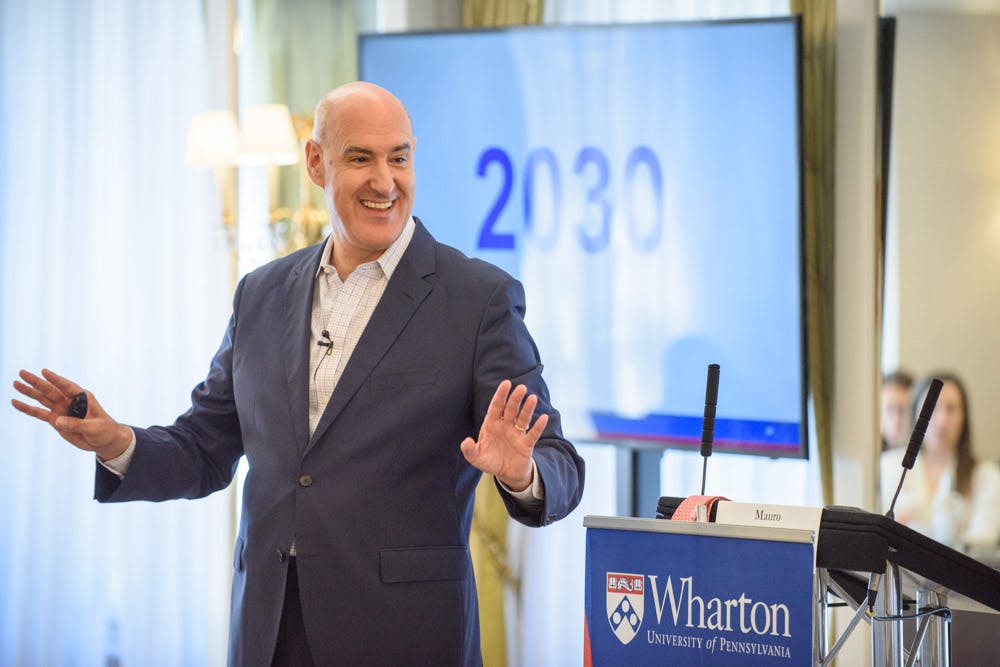During 2008, the financial crisis prompted Wharton Professor Mauro Guillén to teach a course on its impact around the world. Twelve years later, amidst the coronavirus outbreak, Guillén is teaching "MGMT 198: Epidemics, Natural Disasters, and Geopolitics: Managing Global Business and Financial Uncertainty."
Guillén, who originally trained as a sociologist and political economist, earned his PhD in sociology from Yale and a doctorate in political economy from the University of Oviedo in Spain. In addition to MGMT 198, he teaches an undergraduate course on globalization and an MBA class on global management.
Guillén recalls the moment he was contacted about teaching a class regarding the global health crisis.
“Students were sent home and my dean sent me an email saying ‘I know you did a big class on the crisis twelve years ago,’” he says. “[He] told me ‘I think we should offer something.’ In two weeks we had the class up and running, and now we have nearly 2000 students taking it for credit, and nearly 500 auditors.”
The course aims to discuss four topics, covering the impact of the virus across different areas. The first topic covers more technical aspects around the situation, discussing information specifically related to epidemics and how they can be contained. The course then discusses ways in which the economy and financial markets are affected. The third topic relates to the way companies can respond to the virus, incorporating information in different sectors, including marketing and management. Finally, the class discusses geopolitics—“how [COVID-19] is going to change the world.”
MGMT 198 meets once a week for a three–hour lecture. The class has so many students that only about half tune in live, while others in different time zones can watch recordings.
In addition to lectures, students are provided with 10–minute recordings of interviews with Penn alumni working in different industries. The goal is to gain insight into the different decisions companies are currently making by talking to people who are experiencing this first hand. The class currently has conducted nearly 30 interviews with alumni from different professional backgrounds.
“We have people, for example, who work in international organizations, like the world bank, telling us what they’re doing. We have somebody who heads SEPTA, which are the bus and trains locally in Philadelphia, telling us how they’re coping with that. We have people from different parts of the economy also telling us about the impact,” Guillén says.
Guillén mentions that looking at the situation from a professor’s perspective has been a great learning experience. Initially, it was about getting used to the experience of interacting with students in a completely different way, no longer having the typical face–to–face interactions before, during, and after class. He mentions that, through online teaching, he learned about the importance of reserving class time for meaningful interactions.
“For me, it’s like a crash course on everything, from delivering a class of this size and learning about the topic itself,” he says.
Even though it has been a great learning experience, Guillén acknowledges it has some challenges, especially due to the complicated subject matter. Since this situation is unprecedented and constantly fluctuating, it is imperative that the information being taught to students is accurate.
“Well, the challenge is that you have to be completely up to date, right, because maybe we don’t read what’s going on today and you’re basing your lecture the following day on what you had before, then that changes everything. So, it really imposes on you updating everything in real–time, that I think is the real challenge,” Guillén says.
He mentions that, even if the situation returns to normal in the fall semester, he looks forward to the possibility of continuing to teach this course. Guillén’s goal is to maintain students informed and give them the necessary tools to deal with similar situations in the future. For this reason, he has provided learning materials for people who are not currently taking the class. These resources are accessible to Penn students and alumni, ensuring that everyone can stay informed during these unprecedented times.







